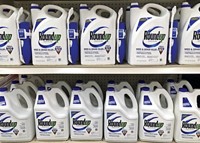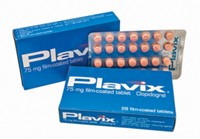Advertisement
Grab your lab coat. Let's get started
Welcome!
Welcome!
Create an account below to get 6 C&EN articles per month, receive newsletters and more - all free.
It seems this is your first time logging in online. Please enter the following information to continue.
As an ACS member you automatically get access to this site. All we need is few more details to create your reading experience.
Not you? Sign in with a different account.
Not you? Sign in with a different account.
ERROR 1
ERROR 1
ERROR 2
ERROR 2
ERROR 2
ERROR 2
ERROR 2
Password and Confirm password must match.
If you have an ACS member number, please enter it here so we can link this account to your membership. (optional)
ERROR 2
ACS values your privacy. By submitting your information, you are gaining access to C&EN and subscribing to our weekly newsletter. We use the information you provide to make your reading experience better, and we will never sell your data to third party members.
Policy
U.S. Supreme Court gives pharma a product liability win
Out-of-state residents cannot sue Bristol-Myers Squibb in California over Plavix
by Glenn Hess, special to C&EN
June 20, 2017
| A version of this story appeared in
Volume 95, Issue 26

The U.S. Supreme Court has handed a victory to the pharmaceutical industry and other businesses that want to prevent plaintiffs from shopping for friendly courts to hear product liability cases.
In an 8-1 ruling, the justices on June 19 overturned a California Supreme Court decision that had allowed a nationwide lawsuit against Bristol-Myers Squibb to proceed in a state court.
Nearly 600 out-of-state residents had joined 86 Californians in claiming the New York-based manufacturer had misrepresented the risks of taking its blood-thinning drug Plavix. California is widely viewed as a plaintiff-friendly state.
But Bristol-Myers Squibb “did not develop Plavix in California, did not create a marketing strategy for Plavix in California, and did not manufacture, label, package, or work on the regulatory approval of the product in California,” Justice Samuel Alito wrote in the majority opinion.
“The nonresidents’ claims involve no harm in California and no harm to California residents,” Alito wrote. The state high court erred, he explained, by allowing the suit without identifying an adequate link between California and the nonresidents’ claims.
“What is needed—and what is missing here—is a connection between the forum and the specific claims at issue,” the opinion states.
“This is one of the most important mass tort-product liability decisions ever,” says James Beck, who focuses on pharmaceutical and product liability law at Reed Smith. The ruling will limit the notion “that large companies can be sued by anyone, anywhere,” he says.
However, Justice Sonia Sotomayor expressed concern that the ruling could make it more difficult for injured patients to successfully sue corporations for product liability in any state.
“The effect of today’s opinion will be to curtail—and in some cases eliminate—plaintiffs’ ability to hold corporations fully accountable for their nationwide conduct,” she wrote in a dissenting opinion.
The decision “hands one more tool to corporate defendants determined to prevent the aggregation of individual claims and forces injured plaintiffs to bear the burden of bringing suit in what will often be far flung jurisdictions,” Sotomayor wrote.




Join the conversation
Contact the reporter
Submit a Letter to the Editor for publication
Engage with us on Twitter